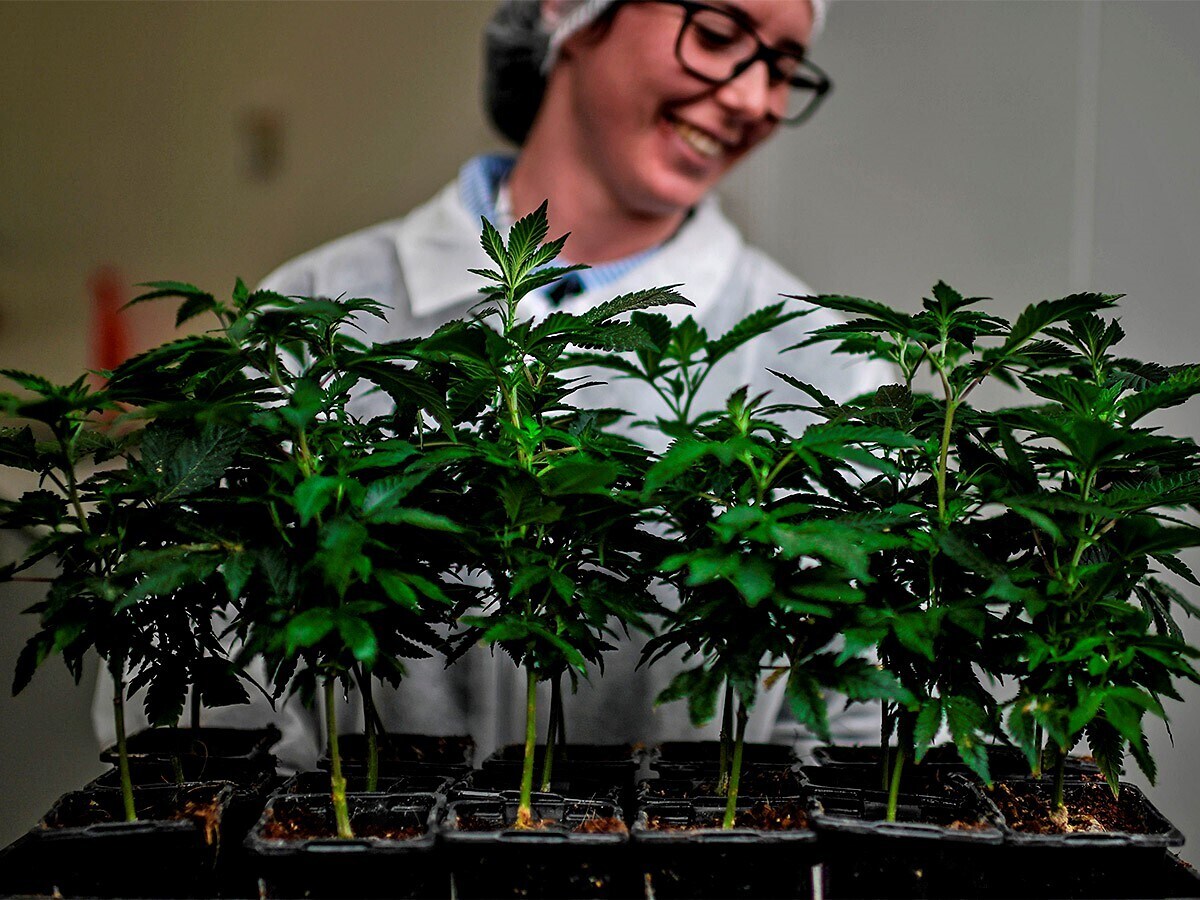Ahead of Q3 2023 earnings, analysts are relatively pessimistic on the cannabis lifestyle brand’s prospects. Profit in 2022 is expected to swing to a $0.06 per share loss, while revenue is expected to fall just under 1% year-over-year. Alongside stalling legalisation efforts and Canadian oversupply, a lawsuit against the company and its former leadership is an important headwind.
- Accusations that former leadership inflated figures are weighing on Tilray shares.
- CEO Irwin Simon hopes acquisitions in adjacent sectors can serve as a hedge to headwinds on revenues.
- Tilray is the second-largest holding of Global X Cannabis ETF.
Tilray [TLRY] will report third quarter (Q3) 2023 earnings after markets close on 10 April.
Analysts polled by Refinitiv expect Tilray to report revenue of $150.5m, which would mark a 0.9% fall year-over-year if it proves correct. While the cannabis lifestyle company posted EPS of $0.09 in Q3 2022, analysts expect Tilray to post a loss of $0.06 this quarter.
Tilray’s share price reached an all-time low on 15 March. As of Thursday, the stock is down 9.3% year-to-date and down 9.3% in the past month.
Tilray shares face a new headwind, as the company and its ex-CEO Brendan Kennedy face a lawsuit alleging that Tilray’s former leadership misled investors. Michael Hudson, the plaintiff and a Tilray shareholder since 2018, alleges that Tilray’s management inflated the value of its inventory by $68m until March 2020, when it wrote down 44% of it.
Tilray’s stock fell 7.6% in the three sessions following the news breaking on 8 March.
Previous earnings and reaction
For fiscal year 2023, Refinitiv analysts are expecting Tilray to post losses of $0.31 per share on revenue of $608.8m. Analysts don’t currently expect Tilray to reach profitability over the course of a year, with the consensus forecast for 2024 a loss of $0.15 per share.
Tilray met analyst expectations of a $0.06 loss per share in its Q2 earnings report, released 9 January. However, the results represented a swing to a loss in a quarter in which the company had reported profit of $5.8m the previous year. Net revenue fell 7% year-over-year to $144.14m.
Tilray’s share price fell 6.4% in response to the release. Investors were particularly surprised by suggestions that the company could respond to the stalling US legalisation progress by temporarily transferring excess capacity into growing fruit and vegetables.
Tilray’s CEO Irwin Simon spoke to CNBC’s Closing Bell in January, striking an upbeat tone despite the poor results.
“At a constant currency we’re up over last year [and] quarter-over-quarter,” Simon told Closing Bell. “I’m happy considering what’s going on… in the economy, and I’m happy in regards to what’s going on in the cannabis world.”
Can Tilray meet its own targets?
Longer term, Tilray’s prospects are strongly linked to whether the US legalises adult-use cannabis at the federal level. But Simon was keen to downplay this, telling Closing Bell that the company must “not depend upon the government”.
Instead, he stressed Tilray’s “strong business in Canada” and its medical presence in Europe, as well as the moves it has made into the wellness food and alcohol markets in the US through acquisitions.
In November 2022, the company acquired New York-based Montauk Brewing Company, and expanded its regional distribution in mid-March. This week, its wholly-owned Manitoba Harvest hemp food brand expanded its distribution through Whole Foods [WFM].
However, Simon admitted that his target for Tilray to achieve its goal of becoming a $4bn business is contingent on legalisation.
This target was initially meant to be reached by the end of 2024, but this date was subsequently extended, according to Pablo Zuanic, Managing Director of Cantor Fitzgerald, thanks to the delay in US legalisation as well as similar issues in Germany.
Tilray’s Canadian market has also struggled from oversupply, resulting in price compression and slowing sales.
Funds in Focus: Global X Cannabis ETF
Investors bullish on the long-term prospects for cannabis as an investment theme can select the Global X Cannabis ETF [POTX]. As of Wednesday, Tilray is POTX’s second-largest holding, with 17.69% of net assets. The fund’s largest holding, Innovative Indus [IIPR], has a 19.03% weighting.
POTX is down 22.5% year-to-date, and down 17% in the past month.
However, investors who are bearish on Tilray’s prospects, and those of the cannabis industry overall, can select the Horizons BetaPro Marijuana Companies Inverse ETF [HMJI.TO]. The fund seeks to provide single inverse returns to the North American Marijuana Index. As of 28 February, Tilray is the fund’s second-largest holding with a 10.34% weighting, behind Jazz Pharmaceuticals [JAZZ] at 10.67%.
The fund has gained 12.6% year-to-date and 13.4% in the past month.
Continue reading for FREE
- Includes free newsletter updates, unsubscribe anytime. Privacy policy





